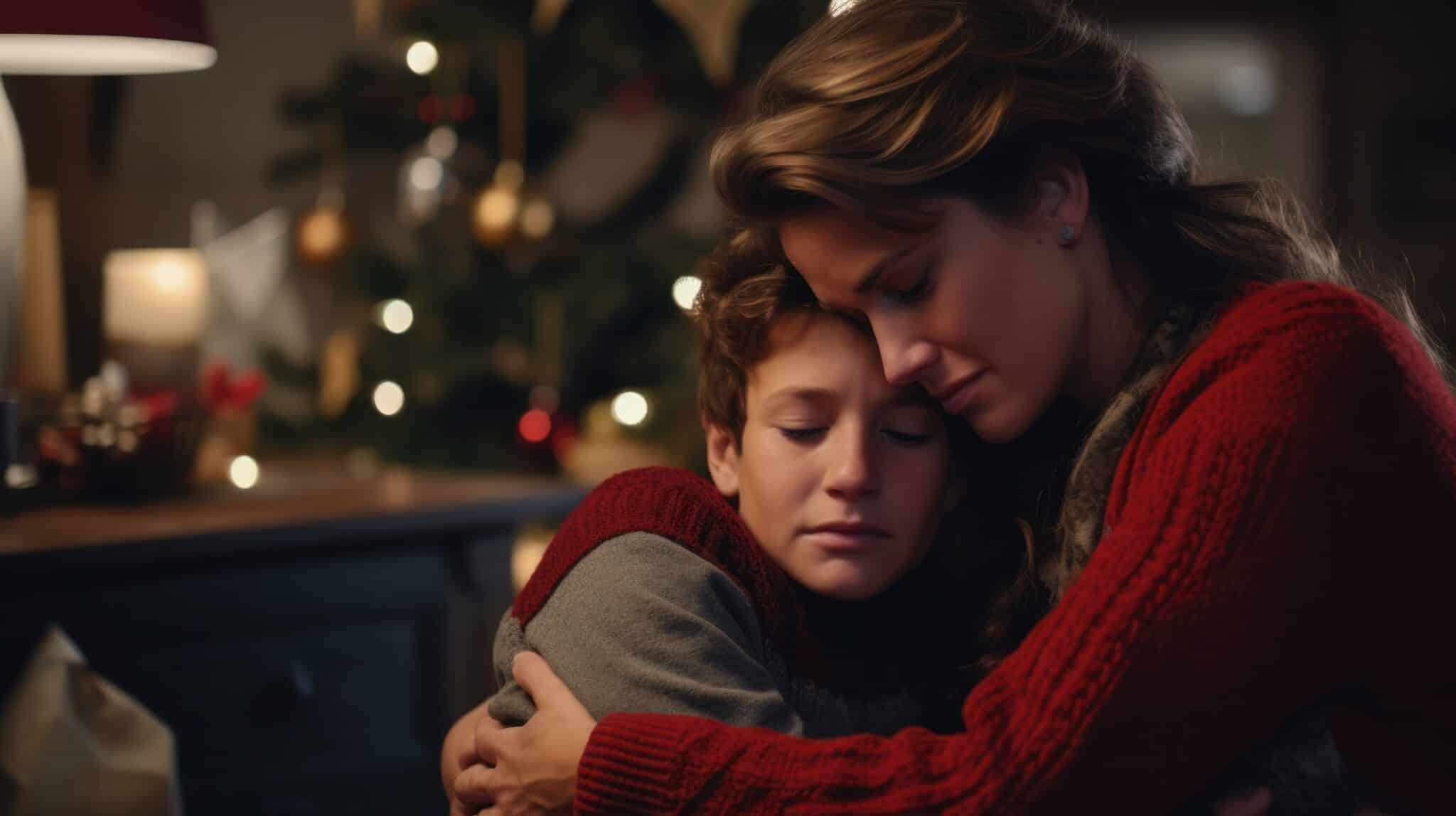The holiday season is often described as a time of joy, but for many bereaved people, it can be a difficult time filled with overwhelming grief. Facing your first Christmas without a loved one is an emotionally challenging time, marked by a combination of feelings—from deep sadness and longing to moments of peace and even unexpected joy.
While this difficult holiday season may feel daunting, there are ways to navigate it with compassion, understanding, and gentle acceptance. Here’s how to approach your first Christmas after a loss with care and intention.
1. This Christmas Is Not the Blueprint
Your first Christmas after a loss doesn’t have to define all future holiday celebrations. Grief changes how we experience major holidays, and that’s okay.
- Approach It as an Experiment: Allow yourself to try new or familiar traditions without feeling bound to keep them forever.
- Be Flexible: What feels comforting this year might change in the future. Let the holiday evolve as your grief journey continues.
- Accept What Feels Right: Release the pressure to “get it right.” This Christmas can be whatever you need it to be.
- It Is OK To Say No To Holiday Events: You don't have to attend every holiday party. Choose what feels best to you.
2. Let Go of Perfection
The holidays are often portrayed as a wonderful time filled with holiday cheer and beautiful holiday memories. But the reality for those grieving can be much more complex.
- Forget the Picture-Perfect Ideal: Social media, holiday movies, and holiday cards can create unrealistic expectations. Your experience is valid, even if it doesn’t match the “holiday spirit” portrayed around you.
- Live in the Moment: Allow yourself to be present with whatever emotions come up—joy, sadness, anger, or hope.
3. Plan Ahead For The Things You Can Control
- Scheduled Self-Care Activities: Block out self-care time in your holiday schedule for rest, calming rituals, or solo activities that recharge you. Prioritize self-care as intentionally as you would any holiday event.
- Holiday Triggers at Events: Plan on how you will cope with difficult situations at holiday events. Create an exit plan, take deep breaths, and bring a comforting keepsake to help you stay grounded.
- Dealing With People: Set boundaries with difficult people who may not understand your grief. Limit contact, practice polite but firm responses, and bring a supportive person to events if possible.
4. Track What Works and What Doesn’t
As you navigate this challenging time, consider keeping a holiday grief journal or list of what brings you comfort and what feels too difficult.
- Journal Prompts: Write about what holiday traditions feel meaningful and which ones feel overwhelming.
- Adjust for Future Holidays: Use this as a guide for future holiday planning. Remember, it’s okay to change your mind as your grieving process evolves.
5. Balance Self-Preservation with Compassion
Balancing your needs with the needs of others can be tough, especially during family holiday gatherings.
- Set Boundaries: It’s okay to say no to certain events or traditions if they feel too painful.
- Stay Open to Connection: If you feel ready, consider spending time with supportive friends or family. Allow space for both solitude and connection.
6. Remember, It’s Okay to Grieve
The holidays can intensify the effects of grief, and it’s essential to give yourself permission to feel your emotions fully.
- Acknowledge All Emotions: Sadness, longing, anger, or even joy—they’re all part of the grieving process.
- Create a Safe Space: Whether through journaling, mindfulness, or talking with a grief counselor, find ways to process your emotions.
7. Create a Balance Between Grief and Celebration
The pressure to “celebrate” can feel overwhelming, but Christmas can hold space for both grief and joy.
- Participate When Ready: Join in on holiday traditions that feel comforting but know it’s okay to step back when needed.
- Allow Moments of Joy: Don’t feel guilty if you find yourself smiling, laughing, or enjoying favorite holiday foods. Joy can coexist with grief.
7. Start New Traditions While Honoring the Old
Creating new Christmas traditions to honor your loved one can make the holiday season more meaningful.
- Light a Candle in Memory: Place a candle on the holiday dinner table to symbolize their presence.
- Create a Memory Ornament: Add their name or a special message to a holiday decoration.
- Holiday Storytime: Share favorite memories or stories about your loved one during holiday meals.
8. Focus on Self-Care
Practicing self-care is essential during the holiday season.
- Mindfulness Practices: Take deep breaths, meditate, or go for a walk when emotions become overwhelming.
- Rest and Restore: Allow yourself time to rest, even if it means adjusting your holiday schedule.
- Gentle Activities: Enjoy comforting activities like baking their favorite cookies or listening to calming holiday music.
9. Connect with Others
While grief can create a feeling of isolation, connecting with supportive people can help.
- Talk About Your Feelings: Share your thoughts with close friends, family, or a grief therapist.
- Join a Support Group: Consider joining a grief support group or attending community holiday events designed for bereaved individuals.
- Volunteer or Give Back: Helping others can bring purpose and comfort during a difficult holiday season.
10. Embrace Moments of Joy Without Guilt
Experiencing moments of joy doesn’t mean you’re forgetting your loved one. It’s a natural part of healing and a way to honor the love you shared.
- Celebrate Their Memory: Enjoy your favorite holiday tradition in their honor.
- Allow Happiness: Recognize that joy is a way of keeping your loved one’s spirit alive.
- Remember the Love: Grief is a reflection of love, and embracing happy memories can be a way of staying connected.
Final Thoughts: A Season of Love and Memory
Facing your first Christmas without a loved one is undoubtedly a tough time, but it can also be a season of meaning and remembrance. While grief reshapes the holidays, it doesn’t erase the love that endures.
Allow yourself space to grieve, connect, and create new traditions that feel right for you. Remember, you are never alone in your grief journey—thousands of people navigate this path, finding strength in shared memories and the support of others.
This holiday season, may you find comfort in cherished memories, peace in small moments, and hope in the enduring love that never fades.


